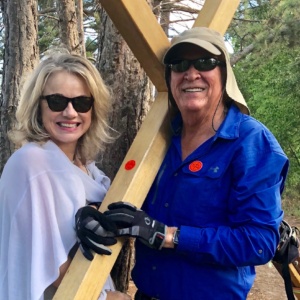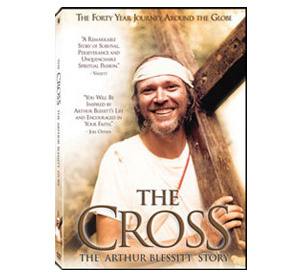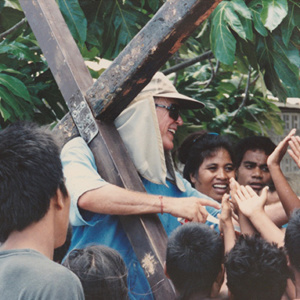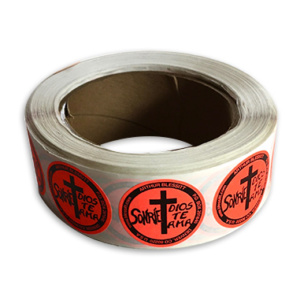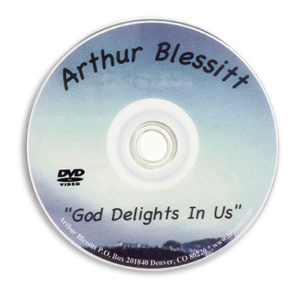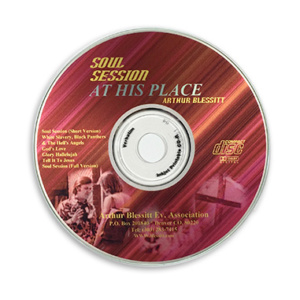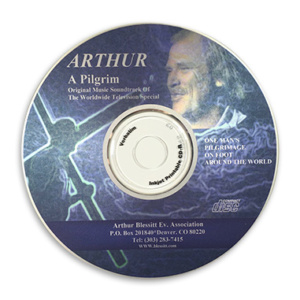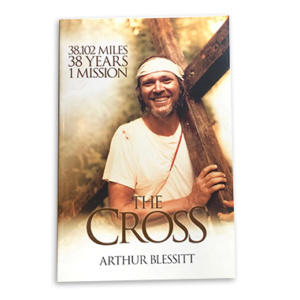HARD RIDERS
A backfire heard round the world was ignited in 1950 at Fontana, California, home of the state’s largest steel mill.
The backfire was from a Harley Davidson motorcycle, and it kicked into gear a new breed of outlaw, a new anti-Establishment subculture, aptly christened the Hell’s Angels.
By the 1960s the mother club had become parent to dozens of other biker gangs, curiously many with names derived from religious sources. The Hell’s Angels spawned the Jokers Out of Hell, Satan’s Slaves, The Straight Satans, The Chosen Ones, and The Chosen Few, among others.
Perhaps there is some backhanded logic for the defiant religious names adopted by the clubs. Roaring down the road at speeds up to 115 miles an hour, the bikers experience feelings of euphoria, exhilaration, and freedom. It is a twisted and dangerous high, but in intensity it matches the vaulting joy experienced every day by those who honestly live for Christ.
Among the bikers, worship of God is replaced by adoration for their machines. ‘The Harley Davidson manual becomes their Bible. In some clubs when members “marry” their old ladies, they take their vows with hands placed on the manufacturer’s manual.
Contrary to popular opinion, the bikers do not come from poverty pockets. Virtually all of them have middle-class backgrounds. Also contrary to popular opinion, most bikers keep one foot in middle-class society. The majority hold down straight jobs during the week: It takes bread, up to three thousand dollars, to buy and maintain a noisy, zooming, chrome-encrusted chopper. It is on the weekends that they band together to fly.
In their rebellion the bikers have gone to outrageous, disgusting, law-defying extremes, and by the 1960’s California had set up a special police intelligence network to monitor the activities of several thousand bikers organized into dozens of clubs. Similar surveillance of bikers was undertaken in a number of other states.
Bikers’ crimes run from murder to rape, assault, and robbery. The bikers’ modus operandi is to thunder en masse into small communities, sometimes treeing the town, or attacking bars and roadhouses a good distance from the nearest police station.
My ministry among the bikers has convinced me that they are as hungry for Christ as anyone else. But they have to be reached with the Gospel in terms they understand. They, like everyone else, long for identity and importance. The gangs serve these needs. Their Nazi insignia, patches with the letter M signifying use of marijuana, their filthy bodies, scruffy beards, nauseating sexual initiation rites, and criminal conduct are surface manifestations of their deep need for help.
These thousands of chopper fanatics seem, by the chances they take in challenging the Establishment and riding their machines at death-defying speed, to be unconsciously bent on suicide. Perhaps this is because the environments from which they stem give them little reason to cherish life, particularly in its most meaningful form, as an adventure in Christian commitment.
Still the bikers are not hopelessly godless. Some two hundred of them, once consumed by dope, booze, violence, and severe emotional problems, have been led to the Lord at His Place and in cities throughout the nation where I have preached at revivals and crusades. “Better is the end of a thing than the beginning thereof,” says Ecclesiastes 7:8.
My first contact with the bikers came while I was preaching at a revival in San Bernardino. I had read the newspaper stories about their frequent arrests and I was concerned. If anyone needed the Lord, the bikers did.
I learned that there was a biker camp near Cucamonga. I piled into my car and drove over a blacktop highway until I reached a sign that said, “DO NOT ENTER.”
I slowed down, prayed some, and made my way over a winding road until I sighted a ten-foot watchtower, a vantage point used undoubtedly to guard against intruders like me and from which an oncoming police raid could be spotted.
The camp was closed off by a barbed-wire fence. On it was another sign: “TRESPASSERS WILL BE SHOT. BLOW YOUR HORN.”
I tried the horn on my car but it wouldn’t work. I couldn’t rouse anyone when I let go with a few shouts. I was terribly disappointed. I felt God had called on me to make this excursion and I was anxious to fulfill His will.
As I turned around and drove back I thought of a friend of mine, Steve Mayhill, the son of a preacher, who lived in nearby Upland.
I went to his house and got straight to the nitty-gritty. “Steve, are you saved?”
“I sure am.” “Steve, are you really saved?” “Absolutely!” he declared with conviction. “So if you died this moment, or in the next hour, where would you go?”
“Heaven, naturally.”
“Right. Does your car horn work?”
“Sure, but what’s that got to do with my being saved?”
“I want you to go to the Hell’s Angels’ camp with me and blow your horn. Mine’s out of whack.”
Steve looked at me as if I were inviting him to shake hands with the Devil.
“No!” he said after thinking it over for a moment. “I’m saved and ready for Heaven, but I don’t want to go in the next load.”
It took a great deal of convincing before Steve agreed to accompany me, and even then he did so reluctantly.
Back at Hell’s Angels’ headquarters, Steve (I’m sure he said a silent prayer first) blew the horn on his Fiat a timid beep. We sounded the horn several more times before we saw a sign of life.
From behind a tree emerged a big, bearded, unfriendly looking biker in his twenties wearing a blue denim shirt and jeans. In his hands and aimed directly at us was a .30-caliber rifle.
“Can’t you read? What are you doing here?”
“I’m a preacher,” I said uneasily. “I want to be the chaplain of the Hell’s Angels.”
That shook him up.
“If you’ll point that gun down I won’t have to fight to keep from stuttering.”
He dropped the rifle a few inches.
“I’ve been reading about your problems in the papers,” I continued. “I’m here to help any way I can and to talk to you about the Lord.”
He let loose a stream of invective that fouled the air like soiled linen. “We don’t need a preacher,” he concluded. “What we need is a lawyer.”
“That’s why you need the Lord. Christ can work on the judge and jury. You can really get the heat off your back when you’ve got Him.”
“Are you for real?” “I’m a real preacher, if that’s what you mean. I’m not a narc or a plainclothesman.”
“You’ve got more guts than brains coming here,” he said, opening the gate and allowing me in.
We rapped together for several minutes. Soon we were joined by a group of six or seven other bikers, fearsome-looking but not disturbed by their unexpected visitor. In the distance I saw a couple of their old ladies. Without a specific invitation from their old men to join us they hung back.
We all sat on the ground and they listened to everything I had to say. It was a tremendous opportunity to witness. I suggested they change the name of their club to “God’s Angels” and live for Christ. I explained the saving power of the Lord, told them not to rebel against God but to accept Him and by accepting Him to lose their hang-ups.
They heard me out for about an hour. They didn’t interrupt except to ask a respectful question or two.
I wasn’t able to lead any of them to the Lord, but as the rap session ended, one of them said, “You’re cool, man.” The bikers admire boldness and anyone who has conviction.
I gave each of them one of my cards and said, “If there’s anything I can do, let me know.”
Some rapport had been established. At least they had paid polite attention, which is more courtesy than I get from many unsaved dudes when I talk about the urgency of coming to Christ.
As I walked out, the biker who’d been at the gate let me examine his rifle, which in his mind was a gesture of friendship.
Steve was waiting when I reached the car. His hands hadn’t moved from the steering wheel and he had kept the motor running since I’d entered the camp.
Shortly after this visit, the police closed that biker camp, but that experience with them showed me that given time and effort the bikers could be convinced to exchange worship of the Harley Davidson manual for the Bible.
My next encounter with a biker came at an unlikely place. I was in one of the mangy model studios on Santa Monica Boulevard, witnessing to Carol, who had once ridden with the Hell’s Angels. She was a young girl, Madonna-faced, so beautiful that she had appeared on the covers of several straight high-circulation magazines. Carol worked at the studio because there she could earn twice the bread of a legitimate model.
She told me a great deal about her boy friend, a biker named “Buddha.” As we talked, Buddha walked in. His name derived from his Japanese ancestry; his father had a highly successful business in Hawaii. Buddha’s hair was shoulder length; his beard had seen the growth of a thousand days. An expert in karate and foot-fighting, no one in his right mind would tangle with him despite his diminutive size. Buddha rode with the Jokers Out of Hell. From his expression it was clear he thought I was flirting with his old lady. It took quite a while to assure him that I was a preacher interested only in Carol’s soul.
“I’m in charge of her soul,” he said, signaling Carol to leave with him.
I saw Buddha a few nights later at The Blue Grotto and began witnessing to him. Seemingly, I made no impact. The next evening I ran into him again at the model studio, and on this occasion God provided a golden witnessing opportunity.
Buddha had laryngitis!
He had no choice but to hear me out as I rapped about God. Finally, I said, “Buddha, let me pray for your laryngitis; let me pray that God will heal you.”
He looked at me out of skeptical eyes, but nodded his agreement. Buddha went down on his knees with much hesitation. He had never before bowed to God or man.
I prayed for Buddha’s soul and as usual worked in a sermon during the prayer. Then I asked God to cure his laryngitis.
“Now, Buddha, you pray.”
In a perfectly clear voice, its clarity surprising even him, Buddha said his prayer aloud. God accomplished more than the trifle of healing his laryngitis: He moved Buddha’s heart! In Buddha’s prayer he invited Christ into his life!
On the wine-colored rug of the model studio, Buddha was saved. After giving his heart to the Lord, Buddha declared wryly, “Now I’m really a Joker out of Hell.”
I began spending a great deal of time with Buddha, and I accompanied him often to a bikers’ hangout, The Omnibus, on Hollywood and Cahuenga. Buddha introduced me to dozens of bikers from his own and other clubs.
Six weeks after his conversion, his reverence for God soaring, Buddha quit the Jokers Out of Hell. And Carol left the model studio.
Buddha and Carol had been living together for more than a year, but now that he was saved Buddha wanted to get married. He and Carol asked me to perform the ceremony.
The wedding took place on a Sunday afternoon at the First Baptist Church in Beverly Hills. The last time I saw him before the wedding Buddha hadn’t cut his hair and beard, and so it came as something of a shock when he turned up for the exchanging of vows in a neat black suit, white shirt, bow tie . . . clean-shaven and short-haired.
“The Lord has really ruined you,” I said, smiling.
Carol was a dream in a white wedding gown.
Buddha is now managing a gas station, and Carol is working as an instructor in a legitimate modeling school. And both are living for Christ.
Working with the bikers is akin to a seismologist measuring the intensity of an earthquake on the Richter Scale, the sensitive instrument that records the magnitude of a given tremor on a scale of one to nine, the larger the number the more severe the upheaval.
One evening around nine I walked into The Omnibus and found some seventy-five uptight bikers and their old ladies in the midst of a shouting, angry strategy session. That crowd of Satan’s Slaves was a human Saint Andreas Fault, already rumbling and about to crack. The only thing keeping the pressure in check was that no one knew who was responsible for gunning down one of their members and his old lady.
At Biff’s restaurant around the corner an unknown dude had stepped to the table where Cliff and Ginger were eating and had unceremoniously pumped three bullets into each of them. Then he had split, not to be seen again to this day.
“They’re in bad shape,” said Stoney, as rugged a biker as ever mounted a chopper.
Another slave of Satan, named Moose, hirsute and jackbooted, said, “Preacher, maybe you can say a prayer for them.”
In a moment when death hovers, bikers like anyone else call instinctively on God.
Every biker and his old lady in that huge beer bar got down on their knees while I asked the Lord to be merciful to Cliff and Ginger.
The prayer brought the Richter reading down to a less dangerous two or three, but the needle could zoom to nine again if the circumstances warranted.
The room now spontaneously emptied into the street, and the frustrated bikers headed for their choppers. Like zinging bees around a hive, a cluster of forty or so bikers and their old ladies formed behind my car as I led the way to the Los Angeles County Hospital on North State Street.
Arriving amid a cannonade of noise, the bikers swept inside and swarmed onto the elevators to the fifth floor after a terrified nurse told us where Cliff and Ginger were being treated.
The Satan’s Slaves, their jackets bedecked with swastikas and Iron Crosses, fanned out along the floor, taking up their stations and holding it captive as if they were a Nazi raiding party canvassing a block for hidden Jews.
A bespectacled elderly doctor emerged from an operating room and took in the scene with a horrified expression.
Stoney stormed up to him. “We want to go inside and see how they’re doing.”
“That’s impossible,” the doctor declared. “They’re in critical condition. Besides, we never allow anyone in the operating room.”
The bikers’ insistence on entering the operating room became a fixation. They simply didn’t trust the doctors. I thought of the needle on the Richter Scale.
“Hold off a minute, Stoney,” I said, and took the doctor aside. I told him I was a minister and added, “If you want to protect the other patients on the floor, your own safety, and the nurses, and probably prevent a killing, I suggest you compromise. Give your consent for two of them to go into the operating room.”
“I’d need permission from the director. The only possible exception would be members of the immediate family, and even that would be stretching the rules.”
“These guys are tense. Let two of them in and when they see the blood and gore they probably won’t stay more than a few seconds.”
“All right, but just members of the family,” the doctor insisted. I couldn’t help but admire his courage. He called out “Which of you is related to the patients?” Every biker’s hand shot up.
The perplexed doctor went down the line, asking biker after biker, “How are you related to the man in the operating room?”
Answered Stoney, “Brother.”
Answered Moose, “Brother.”
Answered all the others, “Brother.”
“Very well,” the doctor sighed. “Two of you can come in.” He let me enter as well.
Cliff was lying on a table, blood pouring from his open stomach as a doctor worked feverishly to remove the bullets. Ginger was prone on another table, unattended for the moment.
As I suspected, Stoney and Moose, tough as they were supposed to be, couldn’t take it. One look and they lurched outside.
Everything was cool now. There was nothing to do but sweat it out.
Not a single biker left the hospital through the night. When the blood bank opened at 8 a.m. they were all in line. Cliff and Ginger had received massive transfusions from the hospital’s emergency blood supply, and the bikers were volunteering to replenish it.
However, they didn’t prove to be ideal donors. The careful technicians tested each biker before taking his blood. Only one in ten qualified as a donor. The rest had venereal disease or too much dope in their systems.
Learning this, I felt there was still an obligation the bikers had to the hospital. I took off in my car and went to every biker hangout I knew. As I passed the word the bikers descended on the hospital, over a hundred of them. Finally there was enough acceptable blood to restock the hospital’s supply.
About noon, as I sat with Stoney, Moose, and the others, a doctor came out and said, “They’re both going to make it.”
To the enormous relief of the hospital staff, the bikers filed quietly out and took off .
Cliff and Ginger were patched up, and recovered from their wounds. In about two months they were riding again with the Satan’s Slaves.
The rise, fall, and rise of a biker called “Beast” is the stuff of novels, not real life.
At twenty-five, living and working on the eastern seaboard, he was a promising young man with a boundless future. For the biker who came to be known as “Beast” was a Baptist preacher! What happened?
“Everybody in my church was a hypocrite,” Beast recalled bitterly. “They were thieves, too. You had to check the Sunday offering three times to make sure none of the deacons, ushers, or parishioners had dipped a hand in. Several times the entire offering was stolen.
“The leaders in the church fussed and argued endlessly.
“Several were worse drunkards than winos on Skid Row.
“The parishioners gossiped viciously and lied habitually.
“I was visiting the wife of a deacon one night and he came home and accused me of sleeping with her.
“The allegation of the pastor sleeping with a deacon’s wife spread like smallpox through the town. Rumor convicted me. I was powerless to put it down.
“I finally reached the conclusion that it was a hopeless, thankless job. I quit, walked away from the church, dumped it all.
“If this was religion, I wanted no part of it.”
Like Gauguin leaving behind everything for exile in the South Seas, he dropped out and disappeared. Unlike Gauguin, he created nothing except a reputation so loathsome he soon earned, and deserved, the name of “Beast.”
His personality had turned 180 degrees. He joined one of the Hell’s Angels’ West Coast chapters, let his appearance become so raunchy and foul that even fellow bikers were offended. He was so mean and ill-tempered that he would fight over anything. He became a doper. The miracle was that he hadn’t killed anybody.
Conversion material?
Certainly. Christ can rescue anyone, no matter how depraved he’s become.
Converting Beast fell on the slight shoulders of a born-again runaway, Estelle, whom I had led to the Lord. She was a quietly militant Christian who would do anything I asked except return to her parents, so polluted with hate and hassling was her home in the Midwest.
Estelle talked to Beast endlessly, and finally struck a chord. A flashback came to him of what God offered the believer. It had been senseless to judge and dismiss God from his life because of one congregation of pseudo-Christians. Through Estelle, Beast recommitted his soul to the Lord
Estelle brought him to me. Beast and I prayed together, talked over where he’d been, where he could be. “I’ve got to get out of the Hell’s Angels,” he concluded. He soon gave away his chopper, jacket, and colors.
A few days later he no longer looked like a beast. He’d shaved, had a haircut, and bought a suit. He phoned his parents and told them he was returning.
The biker once called Beast is back at a Bible college for refresher courses. He plans to preach again. And when this once Devil-consumed ex-biker takes to the pulpit in the future and talks of sin he’ll know whereof he speaks. He’s a fortunate man; he raged through a hell on earth for three years before re-embracing Christ. Now he has one foot in Heaven.
Beast was one of two bikers I’ve met who through Christ ended up serving God in the pulpit. The other was named “Preacher.” Born, raised, and educated in Florida, he’d left his home state at the age of nineteen. He migrated to the Southwest and took up with a bikers’ gang called The Bandidos. He was against everything, the Lord, the Bible, all that the Establishment represented. He would run off at the mouth for hours and so, naturally, they called him “Preacher.”
I ran into Preacher for the first time when I was at a revival at Castle Hills Baptist Church in San Antonio, Texas, which is pastored by hard-working Jack Taylor, a friend for years, an easy- going man on the surface who has a will of iron when it comes to the things of the Lord.
When I arrived in San Antonio, I wanted to conduct an unscheduled Sunday afternoon service.
“There’s no singing group available,” Jack said.
“Then let’s go out and save a group and have them sing and play at the service.”
It seemed the logical way to meet God’s need, and Jack accompanied me on a tour of San Antonio’s nightclubs. We reached one joint that was featuring an all-female, five-member group called The Pink Panthers. Except for their black boots everything about them was pink miniskirts, hats, blouses; even their guitars and drums were painted pink.
We talked to them after their show and led three to the Lord.
When Jack and I asked if they would play at our service, they said they didn’t know any church music. “You can learn, you can come up with something,” I said.
Next day, after they had practiced through the night they played at our service, which was jam-packed with a crowd of more than seven hundred. The Pink Panthers played “Amazing Grace” with a sound I’m certain no one had heard before. It was in rock tempo and it was out of sight. The kids cheered and applauded lustily. The three converted girls each gave their testimony, then I preached.
I was ten minutes into my sermon when a gang of bikers, unmistakable in their colors, clanked in noisily. Spotting them I began telling stories of converted bikers.
About seventy-five people were saved at that service.
After I finished counseling with those who’d been led to Christ, Preacher introduced himself and told me, “Man, I need something more in my life than I have now.”
“Do you want to be saved?”
“Yes.”
Not only Preacher, but several of his fellow bikers came forward to embrace Christ. Jack subsequently baptized all of them.
A few weeks later I was back on the Boulevard when Preacher walked into His Place. He was low.
“Man, I’ve backslid,” he said. “I’ve been hitting up. But every time I take junk it’s awful. It’s better the way I am when I’m right with God.”
I worked hard with Preacher and when he finally rededicated his life he really meant it.
Today he’s an assistant pastor at a church in Atlanta, Georgia. Preacher is a real preacher now.


